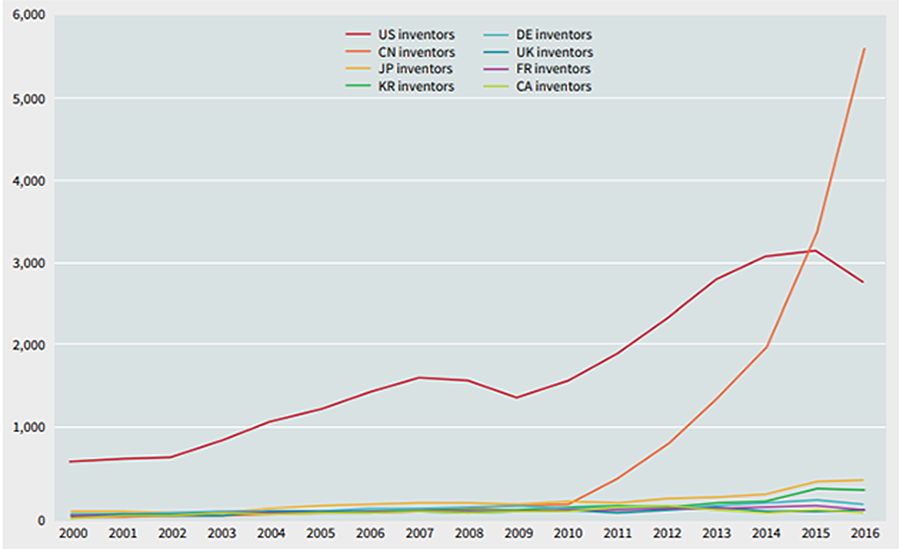The role of intellectual property in a prosperity agenda
The role of IP in a prosperity agenda
The pace of the intangible economy is accelerating, as evidenced by a rapid rise in Patent Cooperation Treaty (PCT) patent filings in the past two decades. This is most evident in the race for AI patents and in the amount of data generated through the rapid adoption of connected devices.
We are witnessing the global race by large firms and advanced nation-states to own critical IP, especially patents, particularly for areas that have both economic and non-economic impacts, such as blockchain, AI and machine learning. These developments are particularly relevant for Ontario as its researchers, along with their peers in Montreal and Edmonton, are widely recognized to be at the forefront of the development of AI. Further, Ethereum’s blockchain currency was created in Ontario. (CBC Radio, December 12, 2017)
Figure 4: AI-related patent volume by inventor nationality

Graph in Figure 4 tracks AI-related patent volume by inventor nationality, including the following countries: the United States, China, Japan, Korea, Germany, the United Kingdom, France, and Canada. Patent filings from US inventors increase (with fluctuation) over time, with a peak in patent volume in 2014-2015. Patent fillings in China follow an increasing (exponential) trend, where the uptick in filings begins sharply as of 2010. The remaining countries follow similar trends of low patent volume, with slight increases starting as of 2014.
Instead of traditional supply chains, the economy of IP and data features intangible value chains where companies compete on staking positions based on their IP and data assets and use those assets to expand their ‘freedom-to-operate’ while limiting competitors.
Successful companies now principally compete on staking positions in value chains of intangibles rather than by only lowering costs in production supply chains. Additional product enhancements and services based on IP and data have low or even zero marginal production costs, which results in “winner take all” economics. Those that want to prosper in the intangible economy are accumulating valuable IP assets because it’s a precondition to commercialization.